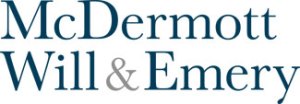The City of Chicago’s (City’s) 2015 budget includes a number of changes to taxing ordinances found in titles 3 and 4 of the Chicago Municipal Code. The City of Chicago Department of Finance has notified taxpayers and tax collectors of the amendments, effective January 1, 2015, via a notice posted on its website. The text of the amendments can be found on the Office of the City Clerk’s website. The amendments, designed to bolster the City’s coffers, affect multiple City taxes by enlarging tax bases, increasing tax rates and tightening credit mechanisms. The amendments include:
-
Hotel Accommodations Tax(Section 3-24-020(A))
-
The definition of “operator” (the tax collector) was amended to include: (1) any person that receives or collects consideration for the rental or lease of hotel accommodations; and (2) persons that facilitate the rental or lease of hotel accommodations for consideration, whether on-line, in person or otherwise.
-
A definition of “gross rental or leasing charge” (the tax base) was added that excludes “separately stated optional charges” unrelated to the use of hotel accommodations.
-
-
Use Tax for Non-titled Personal Property(Section 3-27-030(D))
-
A credit is available for sales and use “tax properly due” and “actually paid” to another municipality against the City’s 1 percent use tax imposed on the use in the City of non-titled tangible personal property that was purchased outside of the City. The added definitions of “tax properly due” and “tax actually paid” exclude other municipal taxes that are rebated, refunded, or otherwise returned to the taxpayer or its affiliate.
-
-
Personal Property Lease Transaction Tax
-
The exemption from the tax for a “car sharing organization” (i.e., Zipcar) was eliminated. (Sections 3-32-020(A) (definition) and 3-32-050(A)(13) (exemption))
-
The definition of “lease price” or “rental price” (the tax base) was amended to exclude nontaxable, separately-stated charges only if they are optional. (Section 3-32-020(K))
-
The tax rate was increased from 8 percent to 9 percent. (Section 3-32-030(B))
-
-
Amusement Tax
-
The amusement tax was amended to be imposed on the full charge paid for the privilege of using a “special seating area” such as a luxury suite or skybox (Section 4-156-020(F)). Credit against this tax is available in the amount of any other taxes the City imposes on the same charges (for example, food and beverage charges) if the taxes are separately-stated and paid. Previously, tax was imposed on 60 percent of the charge for a special seating area and did not include a credit mechanism.
-
Credit against the amusement tax was eliminated for franchise fees paid to the City for the right to use the public way or to do business in the City. (Section 4-156-020(J))
-
The amendments eliminated the additional tax imposed on ticket sellers (Section 4-156-033). The tax was imposed on sellers selling tickets from a location other than where the taxable amusement occurs on the amount of the service fee (as distinguished from the taxable admission charge). Now, all ticket sellers must collect amusement tax from the buyer on the full amount of charges paid to view the amusement. (Section 4-156-020(F))
-
-
Parking Lot and Garage Operations Tax
-
The tax rate was increased by 2 percent for daily, weekly and monthly parking for “the use and privilege of parking a motor vehicle in or upon any parking lot or garage in the City of Chicago [“Parking Tax”].” (Section 4-236-020(a), (d))
-
The definition of “charge or fee paid for parking” (the tax base) was amended to exclude nontaxable, separately-stated charges only if they are optional. (Section 4-236-010)
-
An additional tax was added and is imposed on a person engaged in a valet parking business in the City. Section 4-236-025 imposes tax on the full amount charged by the valet parking business at a rate of 20 percent. A credit against the additional tax is available in the amount of Parking Tax paid. These rules replace the former rule for valet parking operators providing that they were to collect Parking Tax only if the operators of the parking lot or garage did not collect the tax.
-






